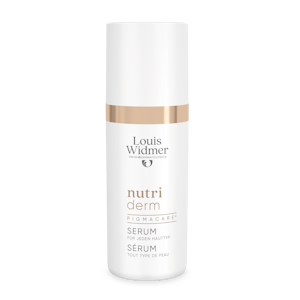Hyperpigmentation typically occurs as a result of acne scarring, cases of melasma, or even too much exposure to the sun. These dark spots can get in the way of achieving an even complexion, but as many skincare enthusiasts know, no one person’s skin is the same.
Different products work for different people, and finding the right ingredients for your skin type can make a huge difference in getting rid of those annoying dark spots. Here’s a rundown of which creams are worth looking at:
Vitamin C
Vitamin C products often come in more potent serums, but those who prefer creams will reap the same benefits from using milder concentrations.
This ingredient is an antioxidant that works by slowing down the free radical damage that occurs underneath the skin. These free radicals are responsible for dark spots, discoloration, and premature aging. It also works by inhibiting the production of melanin in the skin by reducing the activity of a specific enzyme called tyrosinase.
Aside from these benefits, vitamin C creams can also accelerate the production of collagen and elastin to keep your skin firm and plump, allowing you to target concerns other than your dark spots.
Niacinamide
Niacinamide has gotten a lot of attention in recent years, and it’s not difficult to see why. These creams have high concentrations of vitamin B that not only visibly brighten your skin tone but can also reduce your skin’s oil production.
Niacinamide is also a great ingredient to use for beginners because most skin types can tolerate it well.
Apply your niacinamide cream religiously in your nighttime routine for best results.
Hydroquinone
One of the most controversial skin-lightening products on the market is hydroquinone. But make no mistake: this cream is one of the most effective products you can use, especially for more severe types of hyperpigmentation or dark spots.
It works similarly to vitamin C in that it decreases the enzyme tyrosinase needed for melanin production, but it is often considered a skin-bleaching ingredient due to its potency. Hydroquinone can treat most cases of hyperpigmentation in as little as 12 weeks, especially when compared to other skin-lightening products that usually take months longer.
If you have more stubborn dark spots that seem resistant to other types of treatment, then hydroquinone creams may be the best choice for you.
Retinoids
Considered the gold standard of skincare products, retinoid, or retinol creams are mostly known for their ability to reduce and prevent wrinkles and fine lines. Another great benefit of these creams is that they can help scars and dark spots fade and eventually disappear.
They do this by speeding up skin cell turnover, but this can also be irritating for the first eight to 12 weeks.
Retinoids can also cause purging for more sensitive skin.
Those with more sensitive skin can start off with a retinol-based cream, which is milder than prescription-strength retinoids like adapalene and tretinoin.
Liquorice Root Extract
If you’re looking for a more natural alternative to treat your hyperpigmentation concerns, then liquorice root extract creams are the way to go. This is a product that acts similarly to hydroquinone, so if you can’t tolerate such creams, this is another great option.
Liquorice root extract works by inhibiting the enzymes needed to produce melanin in the skin, helps remove excess pigment, and also has anti-inflammatory benefits.
It’s also safe for pregnant women experiencing melasma, unlike hydroquinone, which cannot be used by expecting mothers who want to treat skin discolouration.
The Bottom Line
The creams listed above are excellent ways to treat hyperpigmentation and dark spots, no matter your skin type. However, it is important to remember that these products are best used with a good sunscreen. Incorporating SPF is a must in any skincare regimen, most especially one that is aimed at treating skin discolouration of any kind.
Choosing the right SPF product should also take into consideration your skin’s specific needs. For sun protection that caters to your specific skin type, whether dry, normal, oily, or sensitive, shop Louis Widmer’s line of daycare products.
